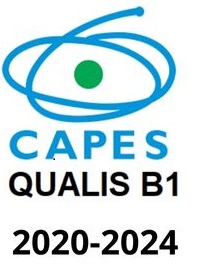Submissão
Condições para submissão
Como parte do processo de submissão, os autores devem verificar a conformidade da submissão em relação a todos os itens listados a seguir. As submissões que não estiverem de acordo com as normas serão devolvidas aos autores.
- A contribuição trazida no manuscrito é original e inédita e não está sob avaliação para publicação em outro periódico.
- O artigo está de acordo com o Foco e o Escopo da Psi Unisc.
- O artigo está de acordo com a formatação do Manual da 7a edição da American Psychological Association (APA, 2020) e foi ajustado ao template disponibilizado.
- Os resumos estão escritos em português, inglês e espanhol. Apresentam os itens: Introdução, Objetivos, Método, Resultados e Conclusão.
- As palavras-chave (três a cinco) estão listadas abaixo dos resumos e descritas de acordo com o vocabulário controlado DeCS - Descritores em Ciências da Saúde https://decs.bvsalud.org/.
- Ao menos dois terços das referências citadas no artigo estão atualizadas (últimos 05 anos).
- O nome do/a autor/a - ou quaisquer indicadores da autoria - foram removidos das "Propriedades do documento" e de qualquer outra parte do manuscrito.
- Os metadados foram preenchidos de forma completa com dados de todos/as os/as autores/as, incluindo-se o registro ORCID.
- Os/As autores/as enviaram como documento suplementar a folha de rosto identificada, conforme o modelo da Psi Unisc.
- A lista de verificação foi observada e o manuscrito está de acordo com todas as diretrizes.
Declaração de Direito Autoral
A submissão de originais para este periódico implica na transferência, pelos autores, dos direitos de publicação impressa e digital. Os direitos autorais para os artigos publicados são do autor, com direitos do periódico sobre a primeira publicação. Os autores somente poderão utilizar os mesmos resultados em outras publicações indicando claramente este periódico como o meio da publicação original. Em virtude de sermos um periódico de acesso aberto, permite-se o uso gratuito dos artigos em aplicações educacionais e científicas desde que citada a fonte conforme a licença CC-BY da Creative Commons.
Política de Privacidade
Os nomes e endereços informados nesta revista serão usados exclusivamente para os serviços prestados por esta publicação, não sendo disponibilizados para outras finalidades ou a terceiros.
Deseja enviar contribuições à revista? Convidamos todos a conferir a seção Sobre a Revista e ler as políticas de seão, bem como as Diretrizes para Autores. É necessário que os autores se cadastrem no sistema como leitores. Após, deve ser solicitado o papel de AUTOR para o e-mail jorgesc@unisc.br. Informe o login e e-mail utilizado no cadastro para que o envio de manuscritos seja liberado na respectiva conta.



